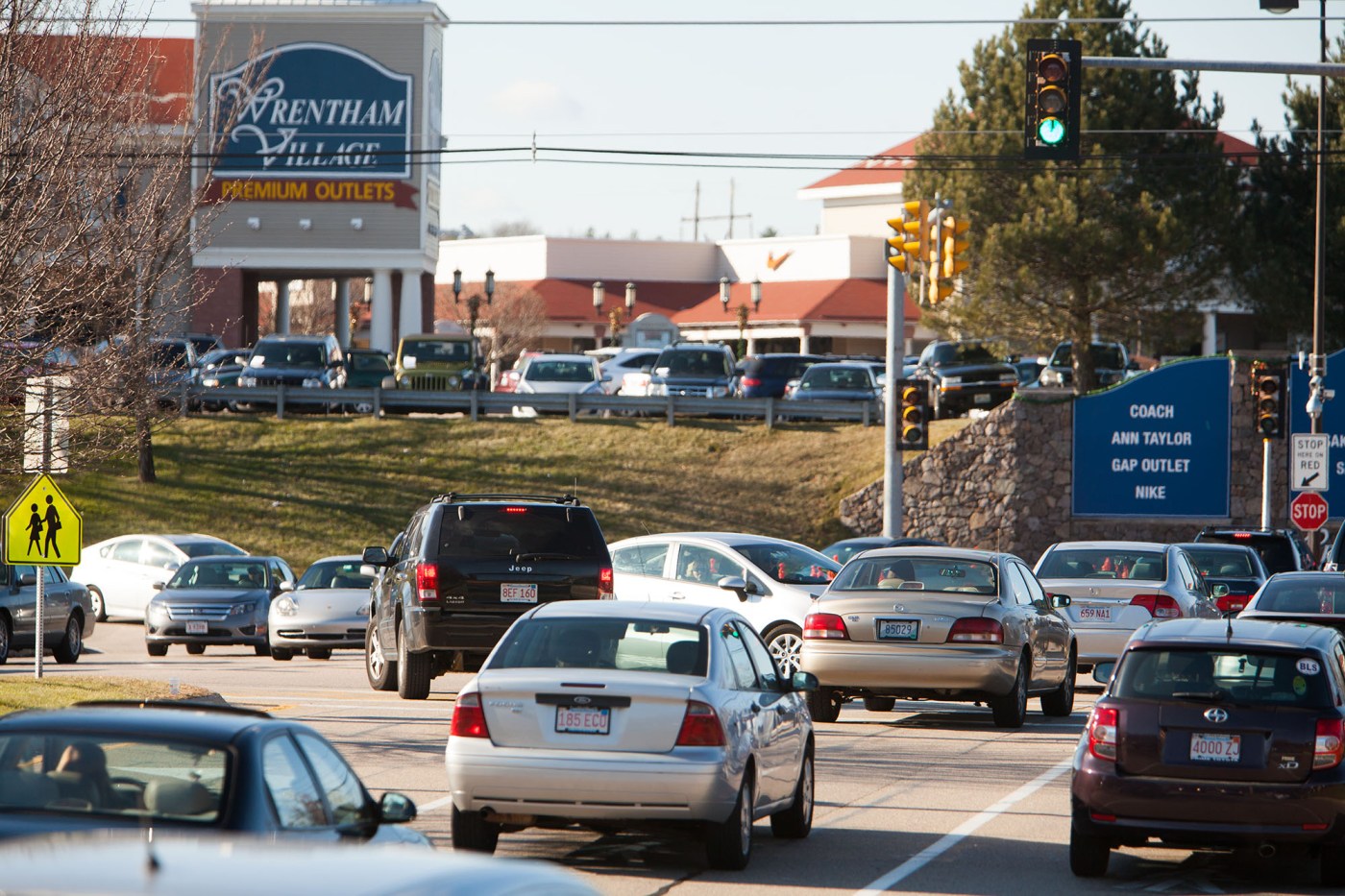
MBTA Communities Act and Wrentham Outlets don’t ruin town’s character, state official says
A state official overseeing implementation of the MBTA Communities Act is putting the controversial law in the same scope as New England’s largest outdoor shopping center: Neither ruins the character of a town.
The Norfolk County town of Wrentham – known for the popular Wrentham Village Premium Outlets – is pushing back against a state-mandated plan that at least 50 acres near its downtown be zoned for multifamily housing.
Select Board members sent a letter to Gov. Maura Healey late last month, urging her to lessen the burden as it believes the law “will lead to the destruction of the small-town New England charm we’ve come to love.”
On Tuesday, the board got down to the nitty-gritty of the law with Caroline “Chris” Kluchman, acting director of the state’s Division of Community Services. Kluchman tried to ease concerns by emphasizing that the law only requires zoning for multifamily housing and not the actual production of units.
“Adding a small amount of multifamily zoning should not change the character of your community just as adding the Outlets maybe did not change the character of your community,” Kluchman said.
It is a benefit to your community, I hope, for cash revenue purposes,” she added, “but I think the small amount of multifamily housing can be done in a way that will not disrupt the wonderful character of your town.”
The outlets account for 40% of Wrentham’s jobs and 25% of its businesses, and the 170-store shopping center chips in almost 10% of the town’s property tax revenue, according to its latest master plan, issued in 2022.
But the outlets are not entirely positive for Wrentham, a town of roughly 12,000 residents, Select Board member James Anderson told Kluchman.
“When you say that the mall does not change the character of our town, I can guarantee you it has,” he said. “Between the traffic and crime that’s increased, it has changed the rural character of the nice town of Wrentham. I respectfully disagree.”
The dispute, also being seen in a handful of other communities, comes as Attorney General Andrea Campbell and the town of Milton are set to go before the Supreme Judicial Court in the fall.
Campbell in February filed a lawsuit against Milton after residents voted down the MBTA Communities Act, also triggering a loss of $140,800 in state funding.
Wrentham has to zone at least 50 acres near its downtown for multi-family housing, with 15 units per acre and a minimum of 750 units in total.
The town is considered an “adjacent community,” meaning it doesn’t have a transit stop itself but abuts municipalities that do – Franklin, Foxboro and Norfolk. The designation requires housing stocks be increased by at least 10%
Added up, the state-mandated zoning plan could lead to a population increase of 13% in a town that officials say lacks municipal sewage and has an inadequate water supply, the Board of Selectmen wrote in its letter to Healey.
The state Executive Office of Housing and Livable Communities has rebuked the notion that there’d be such a drastic population increase under the law, adding some of the zoning districts could be placed in areas where there’s already existing housing.
“Schools won’t necessarily be a one-time impact, it will be slow,” Kluchman said. “Most fiscal analysis that looks at multifamily housing is revenue positive for communities … more excise tax, more personal property tax, more real estate tax.”


